Five British artisan cheeses to try this spring
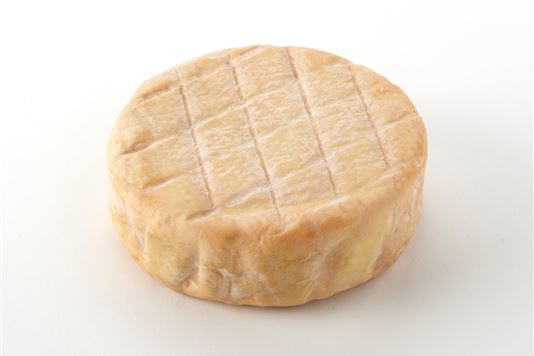
Hero Hirsh, manager of artisan cheesemonger Paxton & Whitfield’s, on the artisan cheese revolution and her five favourite springtime British cheeses.
Cheese throughout the ages
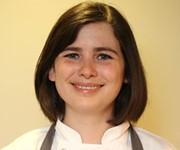 Over the past 20 years the artisan British cheese-making industry has undergone a renaissance. World War II rationing meant that the majority of milk produced in the UK was sent to industrial creameries to make ‘Government Cheddar’, leaving virtually no milk for farmhouse cheesemakers. From the 1970s artisan cheese-making started to increase very slowly, helped by cheese champions such as Patrick Rance. But the renaissance really started in the late 1980s and early 1990s, as dairy farmers diversified into cheese-making as a means of getting additional value from their milk.
Over the past 20 years the artisan British cheese-making industry has undergone a renaissance. World War II rationing meant that the majority of milk produced in the UK was sent to industrial creameries to make ‘Government Cheddar’, leaving virtually no milk for farmhouse cheesemakers. From the 1970s artisan cheese-making started to increase very slowly, helped by cheese champions such as Patrick Rance. But the renaissance really started in the late 1980s and early 1990s, as dairy farmers diversified into cheese-making as a means of getting additional value from their milk.
Today the British artisan cheese-making industry is close-knit, thriving and supportive. New cheesemakers have often worked for well-established cheesemakers before setting up on their own. This collaborative working within an industry is unusual. Other cheesemakers are not viewed as competition, because everyone is working to the same end – making great cheese and converting the British public to eating artisan/farmhouse cheese.
Try before you buy!
Although there are over 700 named cheeses produced in the UK today, I always think it’s such a shame that many people find it hard to name more than a dozen. Artisan cheese is not a cheap commodity, and so understandably people sometimes don’t want to risk buying one they are unsure of. But my advice would be "please do!" Visit a cheesemonger or a fine food deli where they have a good cheese counter. Ask questions about the British cheeses on offer and also ask to sample them before you buy. You’ll then get a chance to find out what you do and don’t like.
Many of the British cheeses you can find, try and buy, are often made by small-scale producers who are passionate about what they do. This is something that I love about working at Paxton & Whitfield. We are often approached by these producers to stock their cheese. If we like the cheese we will often sell it, thereby giving the cheesemakers a platform to sell their products and our customers new and interesting cheeses to try.
There are no shortage of lesser-known artisan British cheeses to discover, and below I’ve listed five that would be perfect to enjoy in the spring. Give them a go and support these small producers.
Blue – Cote Hill Blue
£29.00/kg: unpasteurised, vegetarian rennet
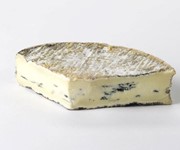 Made by Mary Davenport at Cote Hill Farm, Lincolnshire, this is a creamy blue cheese made with unpasteurised milk that gives it a buttery and satisfying flavour. The milk to make the cheese comes from the farm’s mixed herd of 70 cows, including Friesians, Holsteins and Red Polls. During the summer months the cows graze on clover-rich pasture and in the winter they eat grass, maize silage and red clover haylage which are all grown on the farm.
Made by Mary Davenport at Cote Hill Farm, Lincolnshire, this is a creamy blue cheese made with unpasteurised milk that gives it a buttery and satisfying flavour. The milk to make the cheese comes from the farm’s mixed herd of 70 cows, including Friesians, Holsteins and Red Polls. During the summer months the cows graze on clover-rich pasture and in the winter they eat grass, maize silage and red clover haylage which are all grown on the farm.
This home-produced forage, combined with the high standard of cow management, produces top quality award-winning milk that is high in butterfat and protein. Used unpasteurised it optimises the unique flavours of the cheese. Matured for over three months it has a distinctive rind and a blue veined, soft creamy texture that coats the mouth and leaves behind a buttery sweetness and a subtle kick. Cote Hill Blue won a gold medal at both the 2006 and 2007 British Cheese Awards. This is delicious paired with oatcakes.
Hard – St Wulfstan
£26.00/kg: pasteurised, traditional rennet
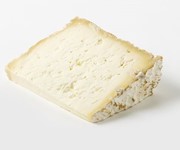 Only available nationally from Paxton & Whitfield, this is an organic cow’s milk cheese made by Gorsehill Abbey Cheese located in the Vale of Evesham, Worcestershire. Named after St Wulfstan, who built many churches and cathedrals in England, the cheese has a firm crumbly texture with a sharp, clean, creamy taste and faint notes of mushroom. Sometimes you can detect tropical fruit flavours in it like banana or pineapple. It goes very well with ginger, quince jelly or fresh pears.
Only available nationally from Paxton & Whitfield, this is an organic cow’s milk cheese made by Gorsehill Abbey Cheese located in the Vale of Evesham, Worcestershire. Named after St Wulfstan, who built many churches and cathedrals in England, the cheese has a firm crumbly texture with a sharp, clean, creamy taste and faint notes of mushroom. Sometimes you can detect tropical fruit flavours in it like banana or pineapple. It goes very well with ginger, quince jelly or fresh pears.
Goat – Pennard Ridge
£34.00/per kg: pasteurised, vegetarian rennet
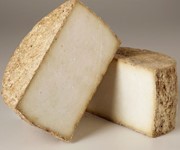 Philip Rainbow has a long history of cheese-making, concentrating on non-cows' milk cheeses. He has recently set up the Somerset Cheese Company based near Glastonbury and makes a selection of goat, ewe and buffalo milk cheeses. Pennard Ridge is a 2kg goats’ cheese made to a Caerphilly recipe. It is pale cream in colour and has a slightly open, chalky texture without being dry. The flavour initially is fresh, clean and slightly fruity with a nutty tang which develops as the cheese matures. It goes very well with a Sauvignon Blanc.
Philip Rainbow has a long history of cheese-making, concentrating on non-cows' milk cheeses. He has recently set up the Somerset Cheese Company based near Glastonbury and makes a selection of goat, ewe and buffalo milk cheeses. Pennard Ridge is a 2kg goats’ cheese made to a Caerphilly recipe. It is pale cream in colour and has a slightly open, chalky texture without being dry. The flavour initially is fresh, clean and slightly fruity with a nutty tang which develops as the cheese matures. It goes very well with a Sauvignon Blanc.
Soft – Finn
£6.25 each/200g: pasteurised, traditional rennet
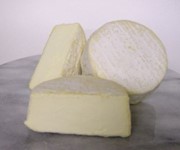 Made by Charlie Westhead from Neal's Yard Creamery, which moved from the South East in 1996 to a beautiful location on Dorstone Hill, overlooking the River Wye, in Herefordshire. Their small-scale approach to cheese-making means that they retain control not only of the production, but also of their power and heating needs. This is not something they undertake as a publicity exercise – it is at the core of everything they do, both at home and in business. The electricity is sourced from ethical suppliers, and as much as possible is generated on-site by a windmill. Heating requirements are handled with a customised furnace, burning locally sourced wood.
Made by Charlie Westhead from Neal's Yard Creamery, which moved from the South East in 1996 to a beautiful location on Dorstone Hill, overlooking the River Wye, in Herefordshire. Their small-scale approach to cheese-making means that they retain control not only of the production, but also of their power and heating needs. This is not something they undertake as a publicity exercise – it is at the core of everything they do, both at home and in business. The electricity is sourced from ethical suppliers, and as much as possible is generated on-site by a windmill. Heating requirements are handled with a customised furnace, burning locally sourced wood.
The organic milk used to make Finn is collected in the mornings from Andrew and Rachel Giles' farm at Glasbury-on-Wye. The cows are New Zealand Friesian (very similar to the British Friesian) with some Jerseys. Finn is a soft cheese, but not runny in the way associated with Brie or Camembert. It would be better described as firm but soft with a sweet, slightly nutty and mushroomy flavour and a distinctly salty tang. Like the French double cream cheese, 10% additional cream is added to the milk before cheese-making starts. It pairs really well with Paxton & Whitfield’s Orange & Apricot Confit.
Washed rind – Golden Cenarth
£7.75 each/300g: pasteurised cow’s milk/vegetarian rennet
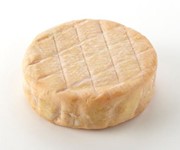 Golden Cenarth is made by Carwyn Adams of Caws Cenarth. This is a family cheesemakers in West Wales started by Carwyn's parents Thelma and Gwynfor in 1987. Although the family has been making Caerphilly for many years, Carwyn is an experimenter and this is one of his new cheeses. The milk used is all organic, GM-free and all sourced from local farms. The cheese comes in a 300g wheel, presented in a round wooden box. It is an organic washed rind soft cheese with a springy, supple texture and buttery flavour. The rind is slightly orange-tinted from the brine wash it is given early in maturation. The flesh is slightly elastic in texture when young and matures to be soft and unctuous with a rich flavour of churned cream. Golden Cenarth was awarded the prestigious prize of Supreme Champion in the British Cheese Awards 2010. It works very nicely with caraway seed breads.
Golden Cenarth is made by Carwyn Adams of Caws Cenarth. This is a family cheesemakers in West Wales started by Carwyn's parents Thelma and Gwynfor in 1987. Although the family has been making Caerphilly for many years, Carwyn is an experimenter and this is one of his new cheeses. The milk used is all organic, GM-free and all sourced from local farms. The cheese comes in a 300g wheel, presented in a round wooden box. It is an organic washed rind soft cheese with a springy, supple texture and buttery flavour. The rind is slightly orange-tinted from the brine wash it is given early in maturation. The flesh is slightly elastic in texture when young and matures to be soft and unctuous with a rich flavour of churned cream. Golden Cenarth was awarded the prestigious prize of Supreme Champion in the British Cheese Awards 2010. It works very nicely with caraway seed breads.
You might also like
A day in the life of a top cheesemonger
Comments
Be the first to comment
Do you want to comment on this article? You need to be signed in for this feature